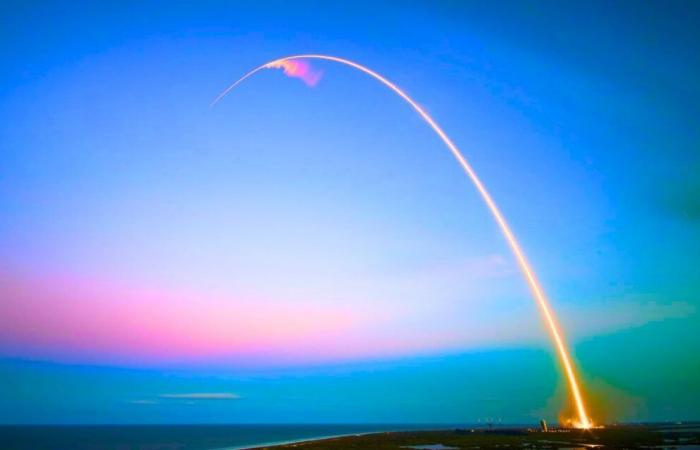
Time is relative, but space exploration is absolute.
Space exploration has always been synonymous with technological innovation. As humanity prepares to establish a permanent presence on other worlds, an unexpected challenge looms: time management. The watches and clocks we use on Earth may not be enough for our future space colonies.
Also read:
The Extraterrestrial Time Challenge
On Earth, we take our time measurement system for granted. However, when it comes to exploring other worlds, the situation becomes considerably complicated. The unique gravity, rotation, and orbit of each celestial body affect the flow of time in subtle but significant ways. For example, on the Moon, clocks move slightly faster than on Earth due to weaker gravity. This difference, although minimal, approximately 56 microseconds per daycan have important consequences for the coordination of space missions and the precision of communications.
Relativity at the heart of the problem
Einstein’s theory of relativity taught us that time is not absolute, but relative. Gravity and movement influence its flow. In space, where ships are subject to accelerations, microgravity and varying gravitational fields, these relativistic effects become crucial. The scientists of the NASA are currently working on relativistic time transformation (RTT) systems to solve this problem. These systems take into account differences in gravitational potential and movement to ensure precise synchronization between different points in space.
A new concept: lunar time
With ambitious lunar colonization projects, such as the program NASA’s Artemis, the establishment of a standardized lunar time system becomes a necessity. The researchers propose the creation of a lunar time scale (TL) and a lunicentric coordinate reference system (LCRS). This system would take into account the specificities of the lunar environment, such as the weaker gravity which accelerates the rhythm of the clocks, the periodic variations due to the movement of the Moon around the Earth and the Sun, or even local gravitational anomalies, called mascons , which subtly influence the lunar gravitational field.
Implications for space exploration
Establishing a unified time system on the Moon and in cislunar space is crucial for several reasons. With many missions targeting the lunar surfaceprecise time synchronization will ensure accurate positioning and reduce the risk of errors during critical mission phases. Also, the coordination of activities between Earth, orbiters and lunar bases requires coherent time synchronization to avoid communication delays and ensure the correct order of data transmission. Finally, a common time standard will allow multiple missions, led by different space agencies and organizations, to share and compare data accurately, supporting large-scale studies of lunar geology, seismic activity, and gravitational anomalies .
After the Moon: Martian time
Timing challenges aren’t limited to the Moon. As humanity looks toward Mars, similar systems will need to be developed for the Red Planet. Concepts like Martian Coordinated Time (MCT in its English version still) and the Darien calendar are already being developed to meet these future needs.
The impact on watch technology
These advances in the understanding of extraterrestrial time will inevitably have an impact on the design of watches and time measuring instruments intended for space exploration. Futures space watches will have to integrate compensation mechanisms for relativistic effects and be able to synchronize with different time systems depending on their location in the solar system.
The technical challenges to be met
Creating watches adapted to other worlds raises many technical challenges. They must resist extreme conditions temperature, pression and of radiation. In addition, their precision must be maintained despite gravitational variations and relativistic effects. Engineers are working on innovative solutions, such as the use of miniaturized atomic clocks or new materials resistant to space conditions. These advances could also have knock-on effects on land-based technologies, improving the precision of our navigation and communications systems.
Space clockmaking sets the record straight
Space exploration is pushing watchmaking towards new horizons. The watches of the future will not only be instruments for measuring time, but real on-board computers capable of adapting to different spatial environments. This development opens the way to a new branch of watchmaking: space clockwork. It could give rise to a specialized industry, creating jobs and spurring innovation in areas ranging from quantum physics to materials science.
The importance of temporal precision for the future of humanity
The conquest of space represents one of humanity’s greatest challenges. Precise time management on other worlds is only one aspect of this challenge, but it is fundamental to our success. It will not only make it possible to effectively coordinate our space activities, but also to better establish our place in the universe.
The world’s most powerful telescope James Webb changes everything NASA reveals shocking discovery about the expansion of the universe
This article takes advantage of our impulses towards other worlds to address the unforeseen consequences on our ability to precisely measure time, regardless of where we are in the solar system, a dimension just as important as our ability to breathe , to eat or to shelter us.





